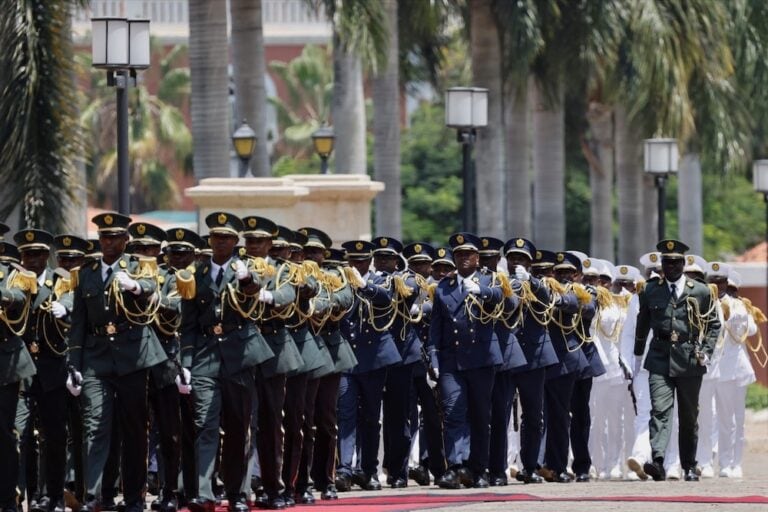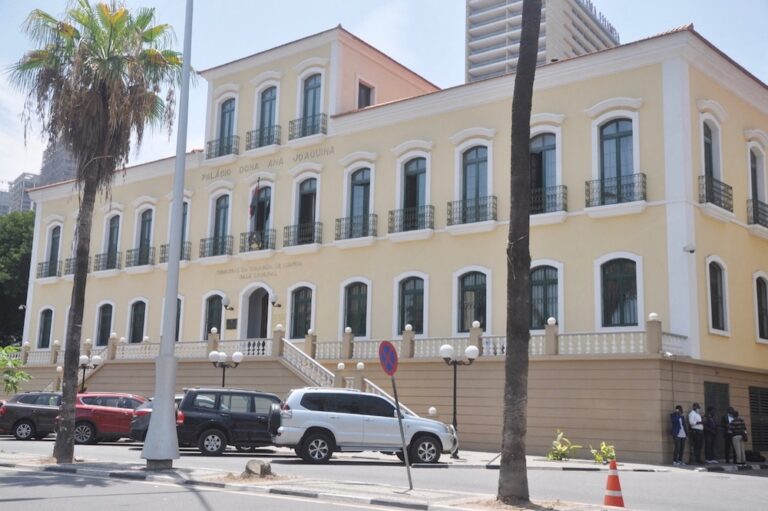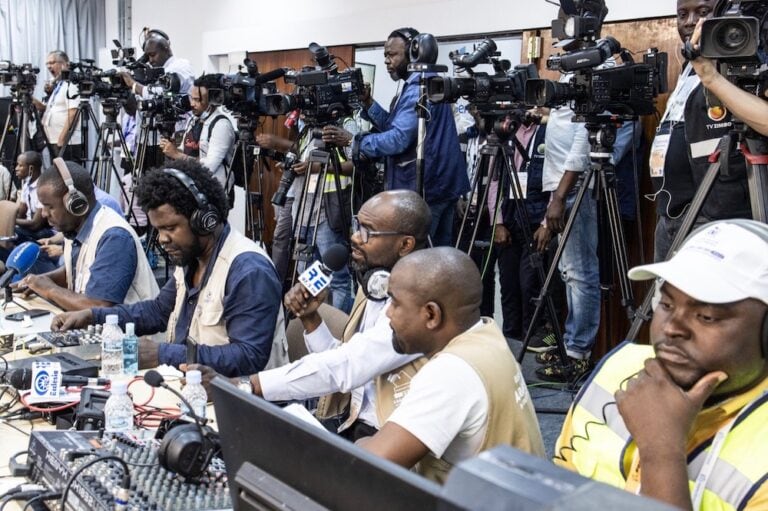(MISA/IFEX) – On Friday 2 July 1999, a group of plain-clothes police officers pounced on two television crews from the state-owned Angola TPA network and the Portuguese state television channel RPT. They seized their cameras because they had filmed a gunfight involving a police squad and armed robbers in the centre of Luanda. Alves Fernandes, […]
(MISA/IFEX) – On Friday 2 July 1999, a group of plain-clothes police
officers pounced on two television crews from the state-owned Angola TPA
network and the Portuguese state television channel RPT. They seized their
cameras because they had filmed a gunfight involving a police squad and
armed robbers in the centre of Luanda.
Alves Fernandes, an Angolan reporter and camera operator for RPT, told
MISA-Angola that the television crews were following the shooting when
suddenly they were stopped at gunpoint and forced to hand their equipment
over to the police agents. “We were lucky they [the police] did not beat us.
But the TPA crew was treated quite bad. They were roughed up, kicked and hit
with the butts of machine guns,” he said.
He also described how they were held at a corner for fifteen minutes, down
on their knees with their hands up, suffering the most humiliating insults
and even death threats from the police agents. “Only God knows how we got
out of that place alive,” recounted Fernandes.
According to other witnesses who spoke to MISA-Angola, the police pounced on
the journalists after they noticed that the crew had followed and probably
taped all the action including the cold-blooded killing of at least one of
the alleged robbers.
Twenty-four hours later, the chief of the Operating Command apologised to
TPA and RPT and returned the cameras without the tapes. The TPA camera was
damaged, apparently by use of force.
MISA-Angola condemned the action and said that it considered this incident
to be the first indication that the threats of violence announced by the
Minister of Social Communication, Hendrik Vaal Neto, on 1 June were coming
to reality (see IFEX alert of 10 June 1999). The local MISA chapter said
that Angolan journalists were in danger and expressed concern over the
consequences of this sign of intolerance which it felt could lead to similar
press freedom violations in the future.
Meanwhile, in a letter to the New York-based Committee to Protect
Journalists dated 23 June 1999, Minister Neto praised his government’s
stance towards journalists in the country, saying that “the state and the
Government of the Republic of Angola have never intended to harass any
journalists or shut down the private media.”
“After more than a decade of democracy, it has been shown that, even in war,
the Government declared no state of emergency or exceptional circumstance,
and no journalist can be found in any Angolan prisons who have justly or
unjustly been condemned and arrested for having published writings or
reports,” he said.
Referring to his statements of 1 June, Neto said that that was “merely to
remind the bad, less competent and insidious journalists that they should
carry out their profession with respect and within the parameters
established by law” (see IFEX alert of 15 July 1999).
A full chronology of incidents affecting media workers in Angola since
January of this year can be found on the Internet at:
http://www.misanet.org/alerts/19990707.angola.0.html


